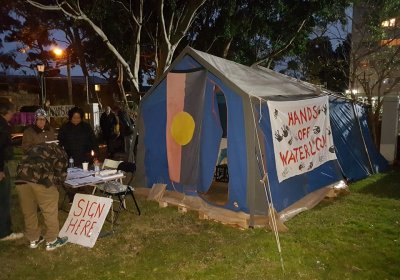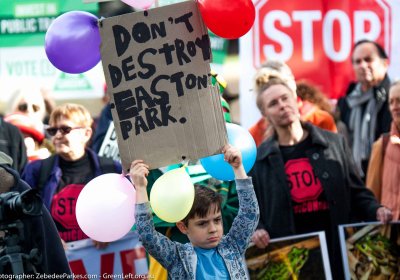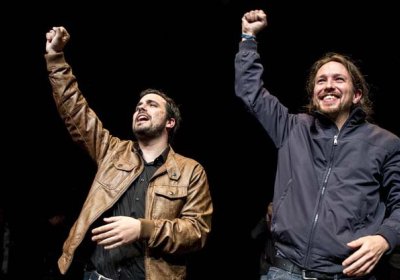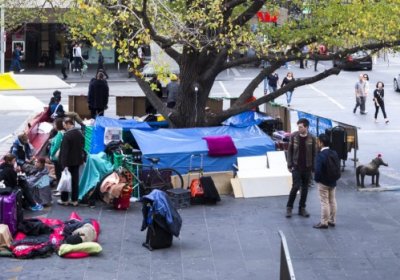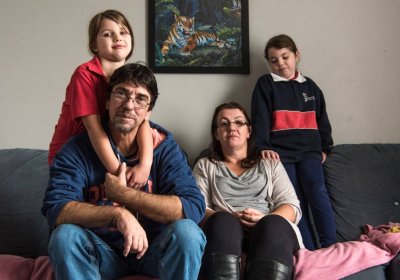The article below was published by Tony Norfield on his Economics of Imperialism blog in the lead up to the June 23. It looks at the impact of British imperialism on all sides of the 'Brexit' debate.
Housing
Public housing tenants, led by the Waterloo Public Housing Action Group (WPHAG) and with the support of the Redfern-Waterloo Aboriginal community, have set up a tent embassy at Waterloo Green to resist the destruction of their homes and their community. The Embassy is supported by Aboriginal elder Jenny Munro who led the successful embassy at the Block in Redfern.
Members of the Bendigo Street housing protest rallied in Melbourne on June 26 to demand affordable public housing and condemn the privatisation of public housing.
Victoria is facing a housing crisis, with more than 25,000 people homeless and 32,000 people on the waiting list for public housing.
There are an estimated 80,000 empty homes, including many compulsorily acquired by the government to build the East West Link that now remain empty.
 Action for Public Housing (APH) was launched at the Redfern Community Centre on June 24. The launch was addressed by Green Bans movement activists Jack and Judy Mundey, Aboriginal elder Jenny Munro and Associate Professor Michael Darcy. The meeting also watched short videos highlighting the history of community resistance to the destruction of public housing in the city.
Action for Public Housing (APH) was launched at the Redfern Community Centre on June 24. The launch was addressed by Green Bans movement activists Jack and Judy Mundey, Aboriginal elder Jenny Munro and Associate Professor Michael Darcy. The meeting also watched short videos highlighting the history of community resistance to the destruction of public housing in the city.
About 500 people attended a Stop WestCONnex community rally in the inner city suburb of Rozelle on June 26 to call a halt to the project and for an end to federal funding of the controversial tollway.
The rally was organised by the WestCONnex Action Group; No WestConnex: Public Transport; Save Newtown from WestCONnex; Save Ashfield Park; and Rozelle Against WestConnex.
 A community assembly as part of a communal council in Caracas. Photo by Rachael Boothroyd Rojas/Venezuela Analysis.
Leading Marxist author Michael Lebowitz spent six years (2004-2010) in Venezuela working as a director of the program for Transformative Practice and Human Development at the Miranda International Centre (CIM) in Caracas. There, he had the chance to take part in the building of socialism for the 21st century.
A community assembly as part of a communal council in Caracas. Photo by Rachael Boothroyd Rojas/Venezuela Analysis.
Leading Marxist author Michael Lebowitz spent six years (2004-2010) in Venezuela working as a director of the program for Transformative Practice and Human Development at the Miranda International Centre (CIM) in Caracas. There, he had the chance to take part in the building of socialism for the 21st century.
Five months after the December 20 election in Spain failed to produce a government, the country is returning to the polls in the most polarised contest since the end of the Franco dictatorship in 1977.
A group of about 40 homeless people have set up camp in Melbourne's city square to put homelessness in the spotlight, as housing agencies and people sleeping rough grow increasingly frustrated with government inaction.
The camp was set up on May 12, after stories in the Herald Sun about aggressive beggars picking fights with pedestrians cast rough sleepers as a public menace.
Duncan Storrar, the man who dared to ask a question about tax thresholds on ABC TV's Q & A program on May 9, has thanked Australians for their support and criticised the Murdoch press after he was villified in News Corp newspapers the following week.
A GoFundMe crowdfunding campaign in the following days raised more than $60,000 for Storrar, after he questioned the Coalition government's tax policy, introducing himself as someone with a "disability and a low education".
The Victorian budget, presented by Treasurer Tim Pallas on April 27, is in surplus, due largely to a big increase in stamp duty revenue, to a record $6 billion a year.
This revenue is a result of Melbourne's real estate boom. House prices have been rising rapidly. But the number of homeless people has also been rising rapidly. There has been a marked increase in the number of homeless people begging on the streets.
Residents of public housing towers in Waterloo, inner Sydney, rallied on April 23 against the NSW Coalition government's plan to forcibly evict tenants so it can sell off their homes.
The community is fighting the government's plan to begin relocating residents from mid-next year, before demolishing the Waterloo apartment towers to build new private high-rise apartments.
Less than 1% of rental properties are affordable for low-income families in Sydney and the Illawarra, according to a new report launched on April 21 by Anglicare Sydney.
- Previous page
- Page 27
- Next page

